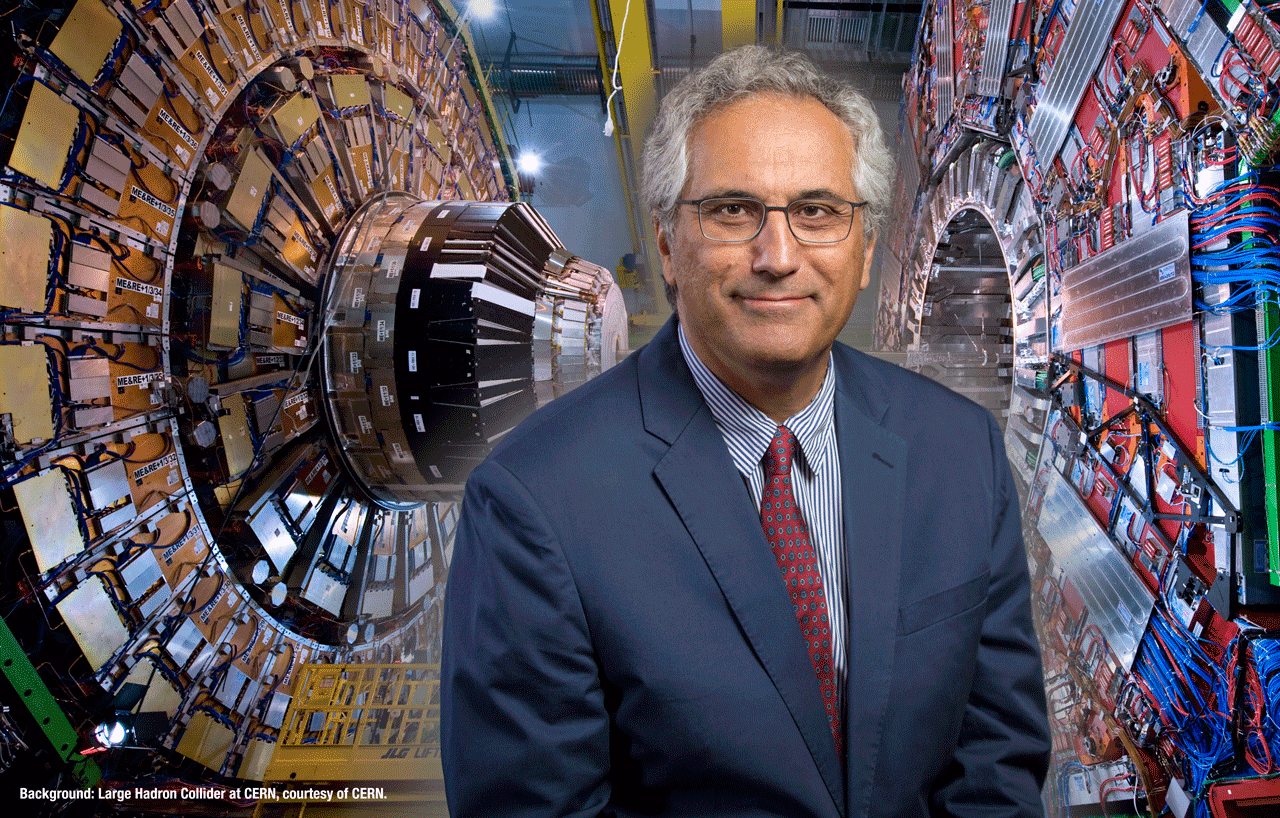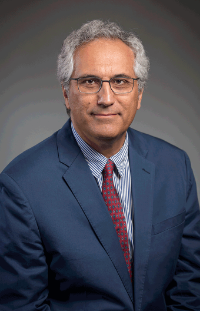
Nural Akchurin, Ph.D.
Associate Dean for Research
Nural Akchurin is a high energy particle physicist who became Associate Dean for Research in the College of Arts & Sciences on Sept. 1, 2018. In this new role, Akchurin, a professor and former chair of the Department of Physics & Astronomy, will help facilitate the individual and collective research efforts of faculty, post-docs, and graduate students in each of the College's 15 departments.
Personal Research Interests
A researcher of long—and prestigious—experience, Akchurin earned his Ph.D. in physics at the University of Iowa and counts his participation in the discovery of the Higgs boson as one of his greatest achievement thus far. The Higgs boson was detected with the Compact Muon Solenoid (CMS) and ATLAS experiments at the Large Hadron Collider (LHC) at CERN, the European Organization for Nuclear Research.
Akchurin started working with CMS in 1994 and after coming to work at Tech in 2000, led the R&D, construction, installation, and commissioning of the CMS forward calorimeters, which are detectors that played a crucial role in the Higgs discovery 18 years later. CERN's announcement of this event on July 4, 2012, was a memorable moment in his career.
Now that the Higgs is "old news," Akchurin says the future holds many new searches in the uncharted territories of the high-energy frontier. For instance, physicists want to know why over 95 percent of the universe is composed of dark matter and dark energy.
"If dark matter can be produced in hadron colliders, we will find it," he says. "The TTU team and I are hard at work searching for it in CMS collisions that contain monojets, dijets, monophotons, and some other exotic topologies."
For the last two decades, Akchurin has worked tirelessly on ways of improving energy measurements of fundamental particles at high energies. One exemplary innovation was the use of radiation-hard, fused-silica optical fibers for the CMS forward calorimeters in an extremely hostile radiation environment. While the CMS detectors are still performing magnificently, Akchurin and his TTU colleagues have moved on to developing a new type of calorimeter, the so-called dual-readout calorimeter, that takes advantage of the unique features of scintillation and Cherenkov photons to improve the energy measurements of hadrons.
"The dual-readout approach is fundamentally different from conventional techniques and paves the way for precision energy measurement for all fundamental particles, not just electromagnetically interacting ones," Akchurin explains. "I am also working on high-granularity silicon calorimeters, not only to explore the fine features of shower shapes but also to extract precision timing information in an attempt to mitigate large pile-up effects in the High Luminosity LHC (HL-LHC)." He and his group are in the R&D phase of these innovative devices and plan to construct a large fraction of CMS's endcap calorimeter modules at TTU's Advanced Particle Detector Lab (APD Lab) in the coming years.
![]()

DR. NURAL AKCHURIN
Associate Dean for Research
College of Arts & Sciences
Texas Tech University
![]()
Selected Publications:
- 2018 Cerium-doped scintillating fused-silica fibers, N. Akchurin et al, JINST 13, P04010 (2018)
- 2017 On the timing performance of thin planar silicon sensors, N. Akchurin et al, Nucl. Instrum. Meth. A859 (2017) 31-36
- 2017 Jet energy scale and resolution in the CMS experiment in pp collisions at 8 TeV, CMS Collaboration, JINST 12 (2017) no.02, P02014
- 2016 Search for narrow resonances decaying to dijets in proton-proton collisions at 13 TeV, CMS Collaboration, CMS Collaboration, Phys. Rev. Lett. 116, 071801 (2016)
- 2016 Forward-backward asymmetry of Drell-Yan lepton pairs in pp collisions at 8 TeV, CMS Collaboration, Eur. Phys. J. C 76 325 (2016)
- 2016 Dose rate effects in the radiation damage of the plastic scintillators of the CMS Hadron Endcap Calorimeter, CMS HCAL Collaboration, JINST 11 (2016) no.10, T10004
- For a complete list, follow this link.
Education:
- Ph.D., Physics, University of Iowa, 1990
- A.B., Physics, Vassar College, 1982
![]()
College of Arts & Sciences
-
Address
Texas Tech University, Box 41034, Lubbock, TX 79409-1034 -
Phone
806.742.3831 -
Email
arts-and-sciences@ttu.edu
